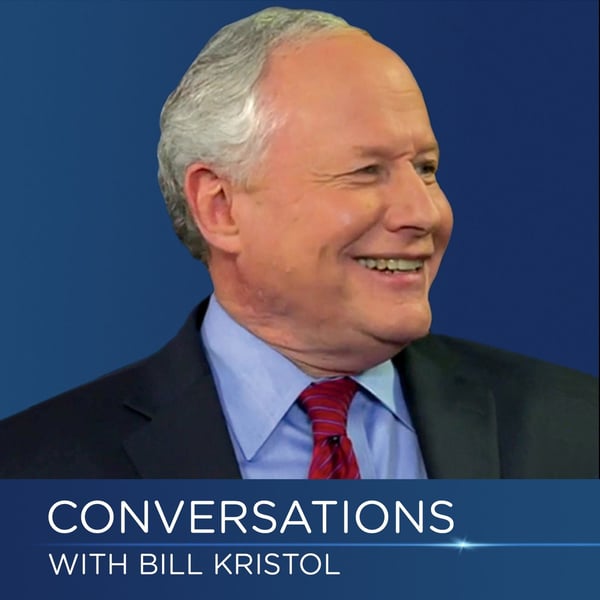Mark Blitz on Martin Heidegger
Conversations with Bill Kristol
Conversations with Bill Kristol
4.7 • 1.7K Ratings
🗓️ 11 February 2021
⏱️ 46 minutes
🧾️ Download transcript
Summary
Transcript
Click on a timestamp to play from that location
| 0:00.0 | When I took political philosophy decades ago and then taught it even a little bit decades ago, |
| 0:05.3 | it seems to me we began to play it out and ended with Nietzsche. You studied Heidegger and |
| 0:09.6 | teach Heidegger. Why Heidegger? Barton Heidegger, I should say, is full name, 20th century, |
| 0:15.0 | German philosopher. I don't teach him in the introduction in the basic political philosophy, |
| 0:19.6 | of course, is because he's maybe too difficult and too remote. But he's really, I think, Heidegger, |
| 0:27.6 | the most significant thinker of the 20th century. One thing that he is the teacher of other people, |
| 0:38.2 | some of whom are, in a way, better known now, Hannah Arrent, Leo Strauss, to a degree, |
| 0:45.6 | Jacob Klein, who's the prime mover of the St. John's Great Books program, |
| 0:51.7 | Hans Gattemer, who's one of the chief authors, you might say, of certain kinds of literary criticism |
| 0:59.6 | and philosophical criticism. He's also the ground of the existentialism, which used to be popular, |
| 1:05.4 | Jean-Paul Sartre, and so on. So one thing that makes Heidegger so important is that he's the |
| 1:11.6 | source of much of the significant thinking after him, either following him or reacting to him, |
| 1:19.6 | but sometimes unacknowledged source, right? The construction and all that French stuff, |
| 1:23.9 | isn't that really Heidegger? Yeah, it's Heidegger. It's a literary criticism. |
| 1:27.3 | Heidegger's view of Nietzsche and Nietzsche. A lot of it, he's the unacknowledged source of, |
| 1:32.7 | sometimes he's acknowledged, but only half acknowledged, the complete reliance of many people on Heidegger, |
| 1:39.0 | something they like to disguise, and at some point, they even probably forget. But he's fundamental |
| 1:46.4 | in all those ways simply in terms of other thinkers. For, let's say, Strauss and Klein, he opened up |
| 1:56.4 | a serious effort and ability to look again at Plato and Aristotle in their own terms. Heidegger |
| 2:04.0 | taught lots of Aristotle in the early 1920s. So that's one reason he's significant. |
| 2:09.6 | More fundamentally, he's, of course, significant because of what he himself did. |
| 2:14.2 | His first great work and really his greatest work, Being in Time, published in 1927, completed |
... |
Please login to see the full transcript.
Disclaimer: The podcast and artwork embedded on this page are from Conversations with Bill Kristol, and are the property of its owner and not affiliated with or endorsed by Tapesearch.
Generated transcripts are the property of Conversations with Bill Kristol and are distributed freely under the Fair Use doctrine. Transcripts generated by Tapesearch are not guaranteed to be accurate.
Copyright © Tapesearch 2025.

